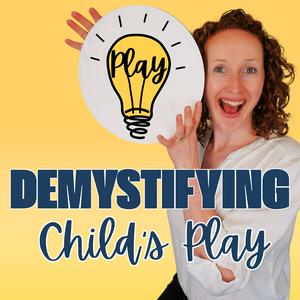Transportation Play Schema Explained... Why Toddlers Carry Everything Everywhere
Have you ever wondered why your toddler insists on carrying toys from room to room, filling backpacks with random objects, or pushing a pram loaded with teddies across the house on repeat?
In this episode, we’re diving into the Transportation Play Schema, one of the most common (and often misunderstood) play schemas in early childhood.
Transportation play is all about moving objects from one place to another. While it can look messy, chaotic, or even frustrating at times, this behaviour is actually deeply purposeful. It’s how young children make sense of journeys, distance, order, and belonging in their world.
You’ll learn:
What the transportation schema is and how it shows up in toddler and preschool play
Why children feel such a strong urge to carry, push, collect, and relocate objects
How transportation play supports brain development, including sequencing, categorisation, and spatial awareness
The emotional side of transportation play, comfort, control, confidence, and independence
How to reframe “messy” behaviour into meaningful learning
Simple ways to support transportation play at home (without fighting it)
We also explore how recognising play schemas can dramatically reduce parental frustration. When you understand the why behind your child’s behaviour, it becomes much easier to lean into their play rather than push against it.
Whether this is your first introduction to play schemas or part of your ongoing journey with The Play Schemas Collective, this episode will help you see your child’s play, and learning, in a whole new way.
If you’re ready to stop battling the mess and start understanding the magic behind it, this episode is for you.
Follow along for more toddler behaviour insights, play schema explanations, and practical parenting support.
Send a text
Support the show
If this episode resonated with you, subscribe, share with a friend, and leave a review!
I would love to hear your playtime stories—whether you’re celebrating a win or trying to crack the mystery behind a new behaviour, I’m here for it. Reach out on social media or drop me a message.
Facebook and Instagram @play_schemas
[email protected]www.playschemas.com
and if you are keen for a freebie... head to playschemas.com/free to see what there is for you!


